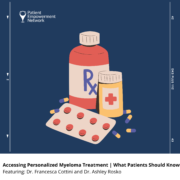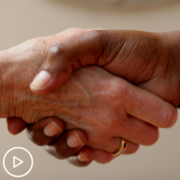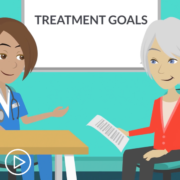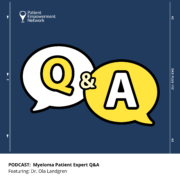How Are Myeloma Therapies and Clinical Trials Becoming More Accessible?
How Are Myeloma Therapies and Clinical Trials Becoming More Accessible? from Patient Empowerment Network on Vimeo.
For underrepresented multiple myeloma patients, what actions are being taken to improve access to care? Dr. Sikander Ailawadhi from the Mayo Clinic explains factors that can limit myeloma care access and shares resources that can help patients improve their access.
See More from START HERE Myeloma
Related Programs:
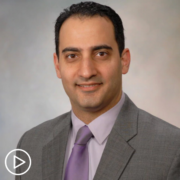
|

|

|
Transcript:
Lisa Hatfield:
So the question is, myeloma treatment is expensive, with quadruplet therapy options, what measures are being taken that can help patients to have equal access, and I think that we can also add clinical trials to that too. Is there anything being done, or how can you encourage patrons to appeal access, whether it’s the drugs themselves or clinical trials?
Dr. Sikander Ailawadhi:
So absolutely, I think, Lisa, that’s an extremely important question as I mentioned, this area of healthcare disparity in healthcare, inequity, for example, is something I’ve spent a lot of time doing my research my career and publishing in this area. Unfortunately, in today’s day and age, we still have a lot of these disparities that exist, patients may not get access to the right drug or the right time because of their geographical region, because of their insurance, their education status, socioeconomic status, and sometimes even in other…situations being similar, just their race and ethnicity. Age is an important factor.
Also, I would say there…I think the important part is that it is much more knowledge, awareness and intent to do something about it now, there’s, for example, in the forthcoming clinical trial that should be opening for really diagnosed patients across the country, soon through NCI and stab where the trial has been specifically designed to do it in as close to real world setting as possible, and when we were writing that child, there’s a specific racial, ethnic minority accrual plan that we are writing around it, and that’s not…I would say just that trial, there are trials that are now specifically going in trying to enroll patients as much as possible from the real world and all walks of life.
And that’s it. I think the bigger question comes, like you started the question by asking the trials are there…we are trying to make a difference for trying to make some changes, changing the inclusion criteria so that patients would even now our accounts can go in, etcetera, etcetera. What about the drugs that are already available at quadruplet therapy, which is a pretty, I would say, demanding approach, because the patient needs to get multiple drugs multiple times, frequent visits back and forth to the clinic, co-payments office with its labs, etcetera. It’s not easy.
Unfortunately, there are certain groups within our society that would have difficulty getting those access, but there are lots of resources that patients and caregivers can access, and hopefully those…help share some of the burden. These are either from the pharma companies or they could be from foundations or societies like the The Leukemia & Lymphoma Society and several other such concerns whose goal is to try and provide an equitable and just access to the drugs and how to get the most evidence-based treatment to every single patient.
So there are quite a few of these efforts in our practice, what we strongly recommend is that the patients, of course, get this knowledge and information through support groups, through their physicians, but also searching for this information online or in a lot of the larger institutions, meeting with the social worker frequently helps gain access to our information about a lot of these resources. So I think a lot of work has been done there, but to bring it down to an individual patient’s level, how can I as a patient get access to something…
I think the patients will have to ask those questions either from their physician, their care team, a social worker, online resources, support groups, that information is out there, we are trying our best to get it to patients that hopefully patients can seek out some of that as well.



